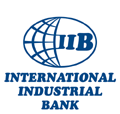Mejprombank debuts on international financial market - 20 October, 2005
The first experience to attract foreign funds proved to be rather successful for Mejprombank
Once Russia's sovereign rating has been raised up to the investment level, Russian banks were given an opportunity to double the volume of foreign-attracted funds and intensify cooperation with Western investors. Mejprombank was one of other Russian banks, which debuted on the international financial market: the bank has recently concluded the attraction of its first-ever $30-million syndicated loan. 
The organizers of the loan, Bank Austria Creditanstalt AG and Bankgesellschaft Berlin AG, said that Western credit institutions were ready to lend a larger sum to Mejprombank, although the latter preferred not to increase the loan. “The bank proceeded from its real needs when the sum of the loan was being determined,” the press service of the bank told Pravda.Ru.
Thus, the first experience to attract foreign funds proved to be rather successful for Mejprombank. The bank will reportedly use the attracted funds to expand its opportunities in the field of corporate crediting, where the bank traditionally enjoys top positions.
Foreign financial resources are attractive to Russian banks and companies due to their relatively low cost. One of the basic problems, which Russian banks have, is connected with attracting crediting resources. As a rule, the loans on the inter-bank market are short-term and expensive in Russia. On the international market are cheaper and longer, as bank analysts say.
Mejprombank received the loan on the LIBOR rate plus 2.5 percent per annum (or about 7.08 percent per annum) for the period of 364 days with an opportunity to prolong the term for another year: such conditions are practically impossible on the Russian bank market. However, it is not easy to attract a syndicated loan: Western bank meticulously investigate not only the financial state of a borrower, but its compliance with international standards too. They pay a lot of attention to the borrower's positions in the charts of international rating agencies.
The increase of the bank's ratings has not influenced the crediting terms, though: the syndication took place several months before the agencies raised the ratings. However, Mejprombank has a right to count on better conditions for attracting funds from abroad: in addition to higher ratings the bank now has its crediting history in foreign financial institutions. This may come in handy, taking into consideration Mejprombank's ambitious plans. The bank particularly plans to issue Eurobonds until the end of the current year, although details of the scheduled issue remain unknown.
It is noteworthy that one may witness a boom in attracting foreign funds in the Russian bank system now. According to estimations made by Russia's Central Bank specialists, banks have attracted $6 billion from foreign states during the period of July-September of 2005. In addition to the fact that the world's three leading agencies raised Russia's sovereign rating, the current skyrocketing volume of foreign loans in Russia became possible due to the favorable market conjuncture, low interest rates of the European Central Bank in particular. A big part of borrowed resources will be used for the classic practice to credit companies (average rates make up 10-11 percent) and citizens (19-20 percent), the Vedomosti newspaper wrote.
Subscribe to Pravda.Ru Telegram channel, Facebook, RSS!





